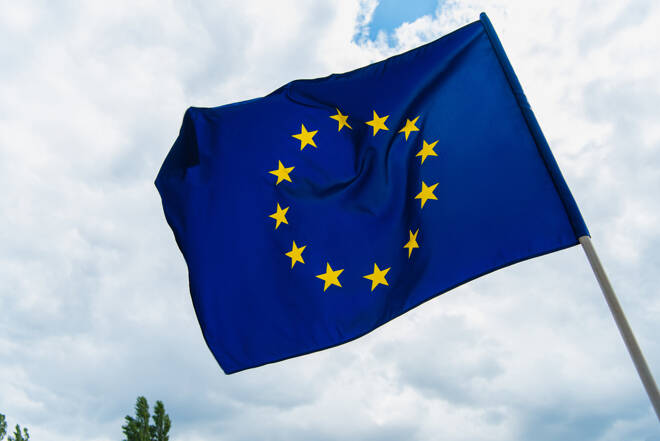Advertisement
Advertisement
Italy Turns to Giorgia Meloni’s Brothers of Italy and the Far Right
By:
Giorgia Meloni looks set for a remarkable victory after only getting 4% of the vote four years ago, as Italy goes far right.
Italy looks set to have its first women prime minister after Italy became the latest euro bloc member to move away from the conservative central.
This weekend, Italians voted for a coalition government led by Giorgia Meloni’s Brothers of Italy. The Brothers of Italy Party has neo-fascist factions spawned from the post-Second World War Italian Social Movement (MSI) and the National Alliance (AN) of the 1990s.
Support for change has been so great that Meloni is on course to secure victory in both houses (the Senate and the Chamber of Deputies) and garner the most votes in the coalition. Coalition parties include the League and Forza Italia.
European governments have sounded the alarm bells for the euro-bloc suffering at the hands of a gas crisis, fueled by the Ukraine war. Italy’s incoming Meloni-led far-right coalition government has already ruffled the feathers of the more conservative EU nations.
With more than 97% of the votes counted, the Brothers of Italy led with 26.2% of the vote. The Democratic Party came second (19.2%), with the Five Star Movement third (15.2%). League and Forza Italia garnered 8.9% and 8.1%.
While the alarm bells are ringing across the more conservative parts of Europe, Meloni is likely to play from the pro-EUR hymn sheet for now. The Italian economy has far from recovered from the COVID-19 pandemic, and the outlook remains grim as Europe heads into the winter months.
In July, Itay’s unemployment rate stood at 7.9% versus 6.6% for the euro area. Only Spain (12.6%), Greece (11.4%), and Cyprus (8.8%) had higher unemployment rates mid-way through the summer.
Significantly, the same member states suffer chronically from youth unemployment. In July, Italy’s unemployment rate for the under-25s stood at 24.0%. Only three nations stood above Italy, these being Greece (28.6%), Spain (26.9%), and Estonia (24.5%). For the euro area, the under-25s unemployment rate stood at 14.2% in July.
By contrast, German had an under-25s unemployment rate of just 5.6%, which was better than the US (7.8%). Youth unemployment has contributed to a political shift away from the center. Both Greece and Spain experienced a change in the political landscape, with Macron barely holding on.
However, Meloni’s coalition government does not have an easy road ahead. Former ECB President Mario Draghi’s ousted party reportedly revised growth forecasts for 2023 from 2.4% to between 0.6-0.7%.
Tax cuts for 2023 form a part of Giorgia Meloni’s plans to boost consumption and growth. The incoming prime minister also stated respect for the European Union’s budget rules. The far-right is in for a stern test.
However, success could spell more trouble for conservative member states. Conservative member states are also grappling with inflation, unemployment, and a marked shift in central bank monetary policy.
With a reported record low turnout of 64%, Meloni’s far-right coalition will need to keep Brussels at bay while retaining voter support. Italy’s President, Sergio Mattarella, will decide who becomes Italy’s next Prime Minister.
At the time of writing, the EUR/USD was down 0.40% to $0.96481.
About the Author
Bob Masonauthor
With over 28 years of experience in the financial industry, Bob has worked with various global rating agencies and multinational banks. Currently he is covering currencies, commodities, alternative asset classes and global equities, focusing mostly on European and Asian markets.
Advertisement
